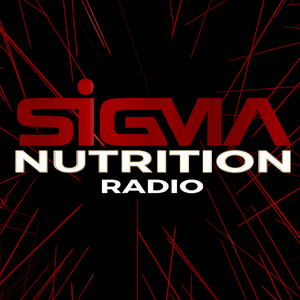#559: Skin Health & Nutrition – Thivi Maruthappu, PhD
The intersection of nutrition, dermatology, and skin health is an area of growing interest, yet one that remains riddled with misinformation and oversimplified claims. The influence of dietary patterns, specific nutrients, and lifestyle factors on conditions such as acne, eczema, psoriasis, and skin aging has been widely debated, with varying levels of evidence supporting different interventions. While some nutritional strategies may play a role in optimizing skin health, the challenge lies in distinguishing practical, evidence-based approaches from overstated or anecdotal claims. A significant issue in this space is the naturalistic fallacy—the belief that diet alone can replace medical treatments, or that conventional dermatological interventions should be avoided in favor of “natural” approaches. This has led to widespread vilification of certain foods, such as dairy, gluten, and sugar, despite a lack of strong supporting data. Similarly, supplements and probiotics are often promoted with broad claims, while their actual efficacy is highly context-dependent—varying based on individual nutrient status, disease severity, and baseline dietary intake. In this episode, Dr. Thivi Maruthappu, a consultant dermatologist and researcher in nutritional dermatology, joins Danny Lennon to explore the current state of evidence in this field. Guest Information Dr Thivi Maruthappu MA PhD FRCP ANutr is a consultant dermatologist, nutritionist and leading researcher. As the UK’s first and only dual-qualified dermatologist and nutritionist, her pioneering expertise bridges the gap between diet and skin health. Dr Thivi continues to work in the NHS and has her own practice based at London’s renowned Cleveland Clinic. Dr Thivi studied Medicine at Oxford University and completed Dermatology training in London. She undertook a PhD to understand the links between our skin and internal health and this research featured in top tier scientific journals. She is one of a handful of dermatologists to have completed training in severe eczema and psoriasis during a fellowship at St John’s Institute of Dermatology, London and achieved a Certificate in Nutrition Science from Stanford Medical School, USA. Timestamps [02:52] Start of interview [03:37] Dr. Maruthappu’s background and expertise [05:57] Sunscreen and skin health: myths and facts [12:15] Effective skincare ingredients [16:07] The role of nutrition in skin health [20:25] Dairy and skin conditions [24:10] Collagen supplements: do they work? [27:45] Probiotics for skin health [31:35] Research outcomes and challenges [35:20] Practical applications in clinical practice [43:05] Key ideas segment (premium-only) Related Resources Join the Sigma email newsletter for free Subscribe to Sigma Nutrition Premium Enroll in the next cohort of our Applied Nutrition Literacy course Dr. Maruthappu’s website

